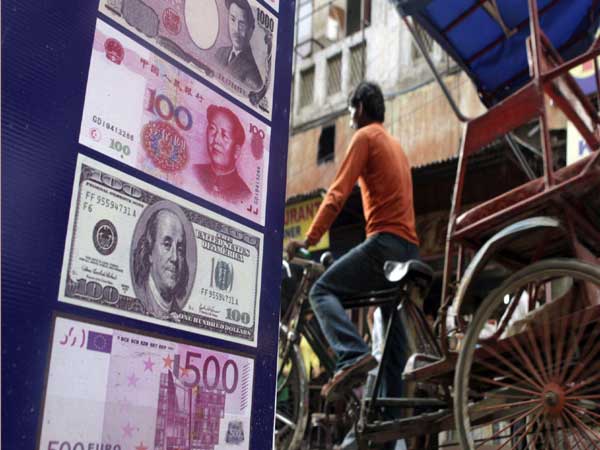
The finance ministry on Thursday pegged the exchange rate for dollar at Rs 73.65 for calculation of import duty with effect from September 21 against Rs 72.55 a fortnight ago.
Similarly, in case of pound sterling, the value has been fixed at Rs 97.40 as compared with Rs 94.30 earlier. As regards to euro, the conversion rate for calculating taxes on imported goods has been fixed at Rs 86.55 against Rs 85.05 on September 6, according to a finance ministry statement.
The sharp revision in exchange rate comes in the backdrop of nearly 13 per cent depreciation in the rupee since the beginning of the year. The rupee had collapsed to a historic intra-day low of 72.99 against the dollar on Tuesday. The conversion rate for computation of duty on exports has been fixed at Rs 71.95 to a dollar, Rs 94.05 to a pound sterling, and Rs 83.45 to euro.
Meanwhile, the rupee is expected to remain under pressure in near-term as the downside risks to it are largely driven by the external factors and will take some time to subside, says a report.
According to Dun & Bradsteet’s latest economy forecast, elevated crude oil prices, strengthening of the dollar, geopolitical tensions and economic sanctions will continue to impart depreciation pressures on the rupee.
“Elevated risks and heightened geopolitical uncertainty, trade wars and economic sanctions along with reworking of trade treaties will continue to impact emerging market currencies, including India,” Dun & Bradstreet India lead economist Arun Singh said in a note.
At this time of global uncertainty along with tightening dollar liquidity in the global market, measures to attract foreign investors to support the rupee might have limited impact, at least, in the short-term. The rupee has fallen around 6 per cent since August. The rupee on Wednesday rebounded by 61 paise to close at 72.37 against the dollar.
On the government’s initiatives to support rupee, the report said the steps were “initial” and more is expected. “If the government undertakes steps like curbing non-essential imports it will be favourable for the local industry and the current account balance but at the same time it might send out protectionist signals,” he said.

